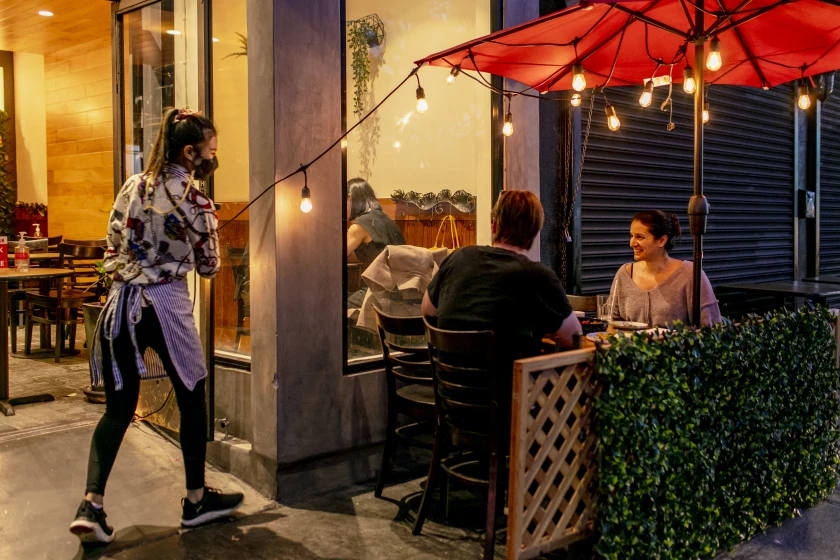Los Angeles’ hourly minimum wage will increase from $15 to $16.04 starting July 1, officials said Thursday.
The city’s salary is linked to the consumer price index published by the Bureau of Labor Statistics and has risen steadily over the past seven years following a push by city officials to curb poverty levels.
The salary will apply to businesses of all sizes, according to the city’s website.
On January 1, California’s minimum wage increased to $15 for businesses with 26 or more employees and $14 for those with 25 or fewer. But cities and counties can set higher revenues.
The economic outlook for Los Angeles in 2022 is vastly different from 2015, the year city leaders approved a series of rolling pay raises. High housing costs are fueling the city’s homeless crisis, and inflation has made some goods more expensive.
Mayor Eric Garcetti, who pushed for the 2015 minimum wage increase, said Thursday that the wage increase set to take effect in July “is a good reason to celebrate, and a reminder that our fight for better wages is far from over.” ”.
Although local chambers of commerce often oppose increases in the minimum wage, some companies accept them as necessary, given the high cost of living locally for workers.
“I am totally in favor of raising the minimum wage,” says Ben Berry, co-owner of four restaurants in the area, two of them in the city, Good Day Thai Kitchen and Cafe and BKK 101 Thai Cuisine.
Berry said his restaurants already pay his 40 employees more than $16 an hour. Workers need these higher wages to cope with the high housing costs in the region.
And regardless of any minimum wage ordinance, competition for labor is driving up wages in the city.
“It’s what the market demands,” he said. “If you’re in a high-demand area like downtown Los Angeles, you have to be competitive with your pay because otherwise employees will leave for better pay.”
But the public, Berry said, needs to “understand that’s why food prices go up.”
Shawn Tavakoli, an executive at Beauty Collection, a group of four area stores that includes one in the city, cites inflation as one of the reasons he opposes raising the minimum wage. “You raise the salary of the employees and the employer passes it on to the consumer,” he said.
“It went from $12 to $15 in a few years,” he said. “But it’s hard to raise the retail price of shampoo, because then you lose customers to the competition.”
Tavakoli said his company pays its staff more than the current minimum of $15, but when the minimum goes up, workers who earn more want a raise, too.
To absorb labor costs, Tavakoli said Beauty Collection has cut operating hours at its Sherman Oaks store from 10 hours a day to eight hours. This has led to the reduction of hours -and therefore the salary- of several of its seven employees.
Stuart Waldman, president of the Valley Industry and Commerce Association, called the authorities’ support for the wage increase “absurd.”
“This massive increase will drive up prices for consumers and will undoubtedly force some businesses to cut employee hours and consider relocating out of Los Angeles,” Waldman said.

